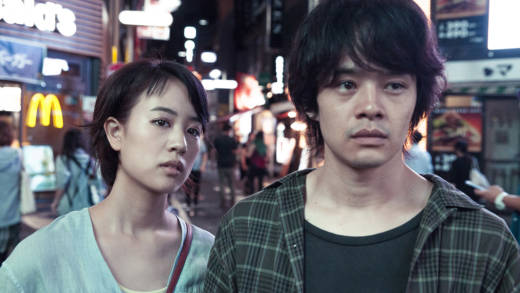In the cinema, love stories are forever. That’s not to say that every romantic movie is timeless, but the genre is an infinitely renewable resource. Inspired by the poetry of Tahi Saihate, The Tokyo Night Sky Is Always the Densest Shade of Blue suffuses the meeting and slow-burning relationship between a nurse and a construction worker with both the eternal hopefulness of youth and the widespread contemporary frustration with limited economic prospects. Writer-director Yaya Ishii swept the Japan Film Academy’s top awards with The Great Passage (2013); this new film, receiving its West Coast premiere in the Japan Film Festival (Sept. 1-10 at New People Cinema), is catnip for millennials.
This year’s festival lineup truly features something for everyone, with relationships—encompassing friends, relatives and strangers—providing the common thread. Hee (Fire), the second film directed by and starring the brilliantly spontaneous actress Kaori Momoi, imagines a murder suspect recounting her life story to a psychiatrist. The low-budget indie, shot mostly in Los Angeles, may not be aimed at millennials based on the disdain Momoi expressed for television in a recent interview. “I want to be in a movie that everyone watches with concentration, a movie that you won’t understand if you get up to go to the bathroom,” she declared. “That’s the kind of movie I want to make. But mine is the last generation to feel that way.” Hee receives its U.S. premiere Sept. 10 with Momoi on hand to receive the Japan Film Festival’s honorary award. Let’s just say it’s not every day you get to see a legend.
Coincidentally or not, the Roxie makes a contribution to our immersion in the singular Japanese point of view with the documentary Tokyo Idols. An unsettling look at the cults of middle-aged Japanese men obsessed with teenage female pop stars, it opens Friday, Sept. 1 for a week.


